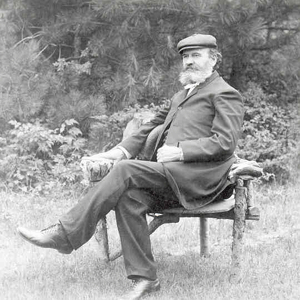A Quote by Oliver Sacks
To be ourselves we must have ourselves – possess, if need be re-possess, our life-stories. We must “recollect” ourselves, recollect the inner drama, the narrative, of ourselves. A man needs such a narrative, a continuous inner narrative, to maintain his identity, his self.
Related Quotes
A perfect historian must possess an imagination sufficiently powerful to make his narrative affecting and picturesque; yet he must control it so absolutely as to content himself with the materials which he finds, and to refrain from supplying deficiencies by additions of his own. He must be a profound and ingenious reasoner; yet he must possess sufficient self-command to abstain from casting his facts in the mould of his hypothesis.
The biggest adversary in our life is ourselves. We are what we are, in a sense, because of the dominating thoughts we allow to gather in our head. All concepts of self-improvement, all actions and paths we take, relate solely to our abstract image of ourselves. Life is limited only by how we really see ourselves and feel about our being. A great deal of pure self-knowledge and inner understanding allows us to lay an all-important foundation for the structure of our life from which we can perceive and take the right avenues.
A protective self-narrative during conflict and duress sometimes obscures us from seeing the worst in ourselves. When the self-sustaining haze lifts after that conflict has subsided, we may recognize in ourselves the flaws the other saw in us at the time that we didn't have the emotional bandwidth to examine in the moment.
Self-respect is often mistaken for arrogance when in reality it is the opposite. When we can recognize all our good qualities as well as our faults with neutrality, we can start to appreciate ourselves as we would a dear friend and experience the comfortable inner glow of respect. To embrace the journey towards our full potential we need to become our own loving teacher and coach. Spurring ourselves on to become better human beings we develop true regard for ourselves and our life will become sacred.
It seems to me that self confidence and the ability to stand one's ground are essential if we want to succeed in life. I am not talking of stupid self-assurance but of an awareness of our inner potential, a certainty that we can always correct our behavior, improve ourselves, enrich ourselves, and that things are never hopeless
God is good. He is eager to forgive. He wants us to perfect ourselves and maintain control of ourselves. He does not want Satan and others to control our lives. We must learn that keeping our Heavenly Father's commandments represents the only path to total control of ourselves, the only way to find joy, truth, and fulfillment in this life and in eternity.
We are always more anxious to be distinguished for a talent which we do not possess, than to be praised for the fifteen which we do possess. Sometimes we are too close to the scene, to see clearly. We "know" ourselves so well that we cannot see how we are perceived by others. Our opinion of ourselves is only "one" opinion and it may not be the truth.
[Grace] is given not to make us something other than ourselves but to make us radically ourselves. Grace is given not to implant in us a foreign wisdom but to make us alive to the wisdom that was born with us in our mother?s womb. Grace is given not to lead us into another identity but to reconnect us to the beauty of our deepest identity. And grace is given not that we might find some exterior source of strength but that we might be established again in the deep inner security of our being and in learning to lose ourselves in love for one another to truly find ourselves.





































